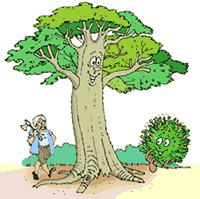Mother Tongue
Mother Tongue :
I approached a stem
Swinging on a reed
And asked him
To give me a quill.
Irritated, he said
I gave you one only the other day
A new one, what have you done with it?
Are you some sort of an accountant
With some Shah
Writing account books
Where you need a new pen
Every other day he asked.
No, I don’t work for a Shah
I said, but for a Shahni, very kind,
Very well off
And I am not the only one
Working for her
She has many servants
Ever ready to do her bidding
That Shahni is my mother tongue
Dogri
Give me, a quill, quickly
She must be looking for me
The reed cut off its hand
Gave it to me and said
Take it
I too am her servant.
Padma Sachdev (born 1940) writes in her mother tongue Dogri and in Hindi. She has received many awards for her poetry, including the Sahitya Academi Award she received at the age of thirty for her first collection of Dogri poems. The above poem, translated from the original Dogri, bemoans the deprivation of Dogri of its native script Sharade, that evolved from the original Brahmi around the time Dogri developed. Once widely used by the people of all religions in the valley, Sharade, for various reasons, came to be replaced by the Persian script. Presently both Persian and Devanagri (Hindi and Urdu) scripts are used for Dogri, a language listed in Schedule VIII of the Constitution of India.
The word POETRY originates from a Greek word meaning TO MAKE. A poet is thus a maker and the poem something that is made or created. No single definition of poetry is possible but some characteristic features of poetry may be mentioned. Poetry has a musical quality with rhythm, pitch, metre and it may use figures of speech such as simile and metaphor. While quite a few poems in this selection are in traditional forms, the unit also includes modern poems that are free from formal restrictions.
